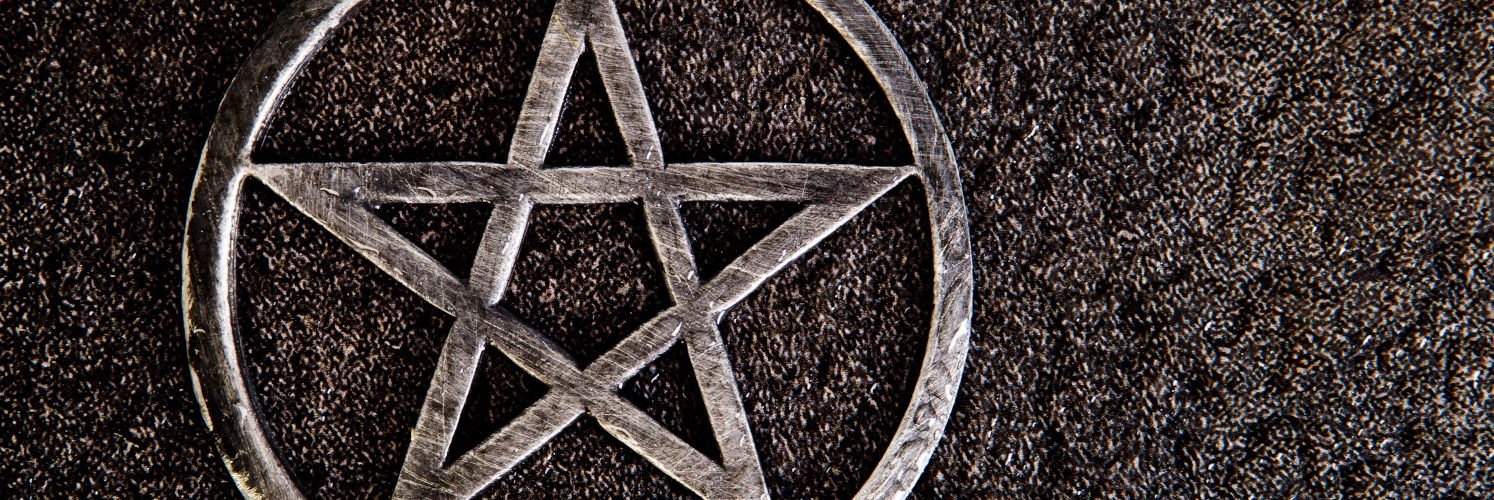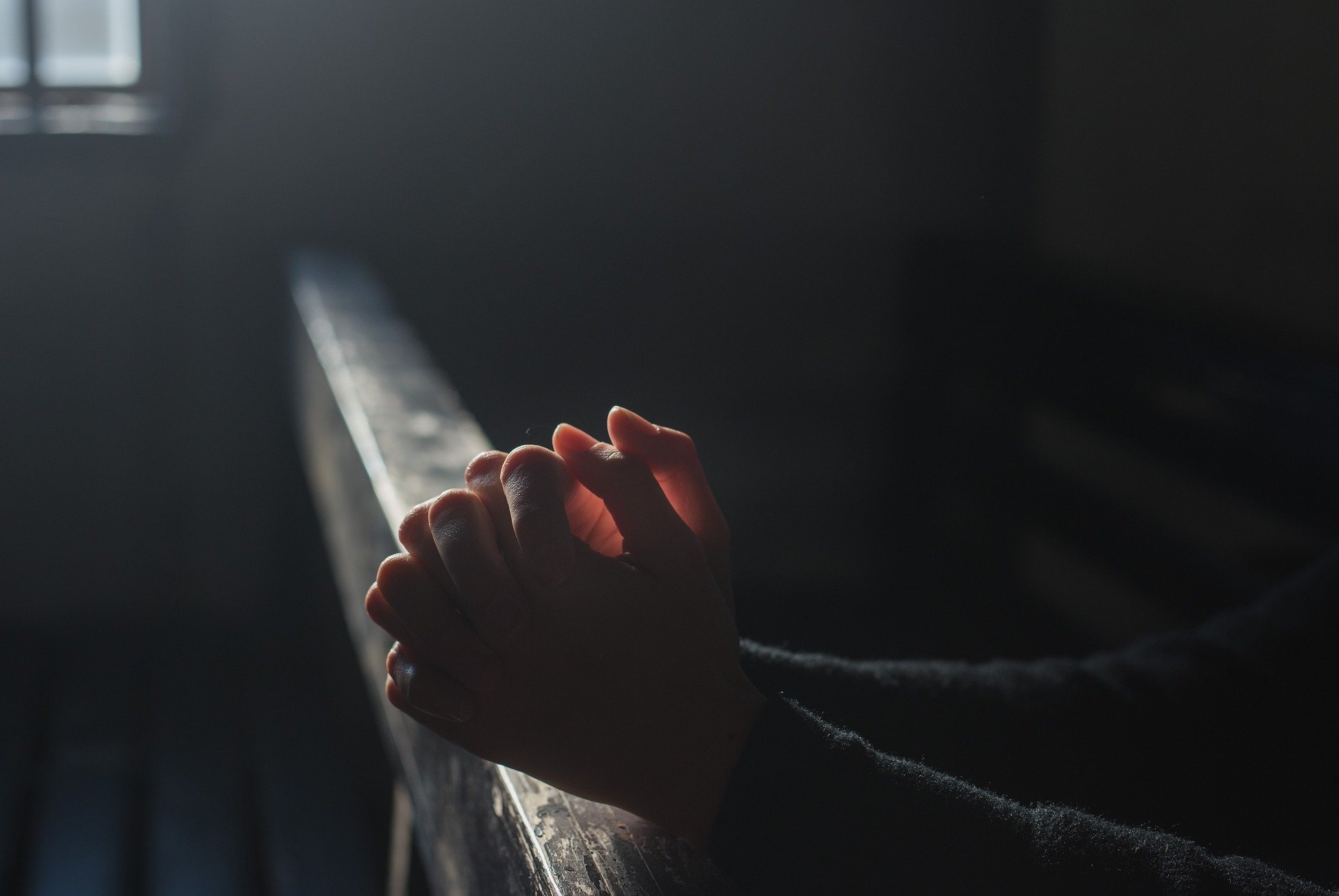I’ve heard people scoff and say they don’t kneel down to their gods, that they stand tall and proud with them. And that’s all well and good. You should have a cordial relationship with your deities, be comfortable around them, be proud to do their work on earth. But don’t you think occasionally you should pay your respects? After all, we’re talking about gods here, not imaginary friends. They’re ancient and powerful and deserving of homage.
I grew up in a religious tradition where prayer was expected. We said prayers at night. We said prayers before meals. We went to church on Sunday, where there was organized prayer for adults and children alike. As a young adult I took confirmation classes where we learned meanings and techniques for prayer. I guess I took it for granted that people knew what prayer and contemplation were.
Then I came to Paganism, and everyone seemed to be anti-prayer. It conjured up images of begging the Big Bearded Policeman In The Sky to keep bad things from happening and being politely ignored or intentionally rebuked. It seemed to be a common thread in people’s beliefs about the Christian God, that he was at best neglectful and at worst spiteful. It made me wonder what sort of twisted, abusive image of God these Pagans had grown up with.
To me, prayer was when you talked to God, unburdened yourself, stripped down to total naked truth of your struggles as a human being. And contemplation was when you listened to God, basked in the presence of the divine, knew that you were safe and protected by a power greater than yourself that never slept and never got distracted. It was a concept I carried with me out of my Episcopalian upbringing and into Wicca.
The prayers that get said the least in Paganism, I’ve noticed, are prayers of praise. Because our gods aren’t omnipotent or omnibenevolent, it seems that idea has entered the movement that they are unworthy of us saying, “You’re really awesome.” But the fact is, our gods are really awesome. They have amazing stories and fantastic powers. Some of them are gentle, others are downright badass. But they’re ancient and powerful and wise and worthy of veneration for those reasons and many more.
There is gentle movement in Paganism toward prayers of gratitude, though they’re directed more toward plants than gods. It’s customary to give thanks to an herb before harvesting from it, for example. Some people object to prayers before meals because they say they don’t need a prayer to make the food sacred, that it was sacred simply by existing. But what these people miss about the concept of prayers of gratitude is how quickly these things could disappear. That’s why we’re grateful for them. Because we could very easily not have them. Anyone who’s lived through a natural disaster can tell you how quickly the things we take for granted can disappear — power, water, food, shelter. Civilization has raised us up to the point where we don’t generally have to worry about these things, but that doesn’t mean we shouldn’t acknowledge the fact that the gods had a hand in providing us with the means to sustain ourselves and we should be grateful for them and their continued influence in that regard. Prayers of gratitude are more than a tit-for-tat transaction. They’re an offering of humility and understanding of the abundance we live in. In my tradition, “thank you” is a powerful magick.
Similarly, prayers of hope seem to be gaining traction in a more casual way. “Goddess, give me strength,” sounds like a pretty straightforward statement or even demand, but encapsulated in it is the hope that the Goddess will grant your request and energize you with renewed strength. It is an optimistic request borne from a need. Granted, in the moment, those requests may be made out of frustration or exhaustion, but there’s still hope that they’ll be fulfilled.
Incorporating Prayer Into Your Practice
If organized prayer — by which I mean dedicated time spent praying or contemplating — is something that appeals to you, then I recommend delving into the wonderful world of ancient and modern pagan prayer. The Sumerian high priestess Enheduanna (2300 BCE) wrote the Sumerian Temple Hymns, the first writing attributed to a known author. The Homeric Hymns (6th and 7th Century BCE) praise the ancient Greek gods. Similarly, the Orphic Hymns (2nd and 3rd Century CE) played a part in ancient initiation rituals. Hinduism has the Vedas (1500-900 BCE).
Of interest to modern Pagans is the work of Galen Gillote, who wrote Book of Hours: Prayers to the Goddess (2001) and Book of Hours: Prayers to the God (2002), and also Ceisiwr Serith, who wrote A Book of Pagan Prayer (2002) and A Pagan Ritual Prayer Book (2011). These collections, though imperfect, seek to illustrate a pathway to organized, prepared prayer to the gods in a manner that honors the proud tradition of prayer in historical paganism. Gillote’s prayers are intimate and contemplative, suitable for organized prayer at home. Serith’s prayers span a wide variety of deities and occasions, both public and private.
Beginning a prayer practice can be as simple as taking a few minutes when you wake each morning and before you sleep each night thanking the Gods for your life and health. It’s also an opportunity to bring to them your worries, your fears, and your insecurities. For those who have — or seek — a devotional deity, meaning a deity to whom one’s primary focus is fixed, these morning and evening prayers can be an opportunity to connect to the energy of that deity.
Another prayer practice that might appeal to you is the creation and use of prayer beads to count out chants, mantras, or affirmations, or to hold as a focal object during prayer. Paganism is rich with symbols that you can incorporate into your beads, from stones or beads for different elements or intentions to charms or pendants representing different deities or sacred objects.
Finally, undertaking the reflective task of writing your own prepared prayers can help you delve deep into the mythology of your deities and reach deeper levels of understanding of their stories and symbols. A handwritten prayer book is both an heirloom and a repository of power.
Whatever you seek to accomplish in your prayer life, may it bear fruit for the good of all and with harm to none.

